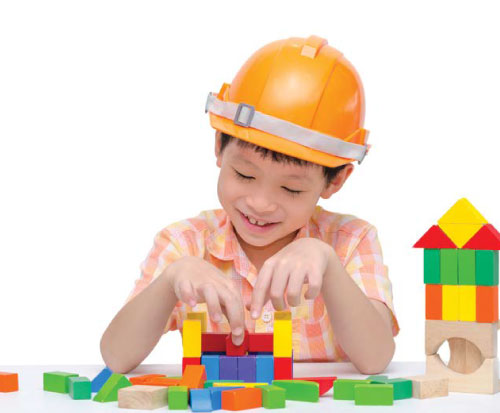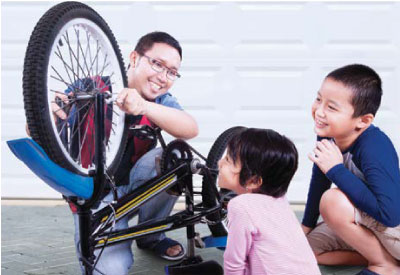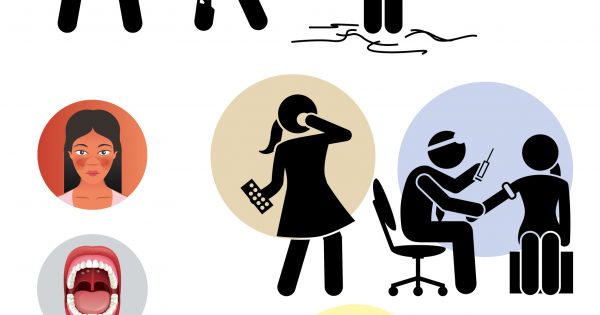Many adults today lose out on life-changing opportunities because they are stuck in their routines – unable to adapt or transform their ways. You do not want your child to be stuck in the same situation, so here is how you can spark enthusiasm for lifelong learning in your children.
Lifelong learning is the development of formal and non-formal learning: the continuing development of skills, knowledge and competencies that people require throughout their lives that will help them create positive changes for themselves and others around them.
Just think, you were once single, now you are married and have children. A monumental shift in your life has occurred. You undertake new responsibilities, confront new challenges, learn new skills and adapt to the changes. You are on a journey of lifelong learning in the field of parenting.
There are 3 types of learners:
- Adaptive – Rely on solutions that worked in the past and are comfortable making incremental adjustments if necessary.
- Generative – Always in pursuit of new ideas and skills, experiment with new behaviours, and set challenging goals for themselves.
- Transformational – Have the skills to confront and create frame-breaking change. These people are adept at recognizing gaps, setting goals, establishing a learning plan, and maintaining motivation to achieve set goals.
A person can be one, all or none of these depending on competencies they have acquired throughout life. Therefore, lifelong or continuous learning is often viewed as the domain of adult or continuing education.
However, the seed that will fuel the motivation to learn, change and adapt is planted early during childhood. How do you foster fondness for learning in your child?
1. Don’t Judge, Nudge
Children make mistakes; it can be tempting to lash out and be judgemental. Instead, parents should:
- acknowledge that mistakes do happen but that learning from them and not repeating them is key towards moving on and improving one’s self.
- do not be overprotective, let them make their own mistakes from time to time – experience is the best teacher after all.
- teach them to take responsibility for their own mistakes and not blame others.
- praise their courage and support their efforts to overcome setbacks.
- do not use past mistakes against them. Instead, use them as reminders to focus on the challenges ahead.
2. Focus on Being ‘Able’
Sometimes parents emphasise too much on wanting their children to be better than everyone else. High and unrealistic expectations can be a source of tremendous stress for a child. Hence, it would be better to focus on helping them improve on existing skills and learning new ones – this leads to better self-efficacy and less prejudices.
- Nurture their interests and help them pursue their passions by making materials and activities related to their interests available to them.
- Provide leadership opportunities and work-based learning experiences.
- Help them polish their emotional & social skills by allowing them to engage and interact with different people through NGOs or community-related events.
- Discuss their future plans more often and how they can work towards achieving them.
3. Celebrate Curiosity and Creativity of New Ideas
Creativity helps kids be more confident, develop social skills, and learn better. Nurturing curiosity and creativity in your kids encourages a lifelong drive and enthusiasm for learning. Help your child gain the concentration, competence, perseverance, and optimism necessary to succeed in creative pursuits.
- Cultivate creative critical thinking by allowing unstructured time to just have fun and play around.
- Help your child meet new people, go to new places and explore new experiences to broaden their minds.
- Let them be unique, support them and do not worry if they are a little different from their peers – as long as they have a friend or two it is going to be fine, do not give in to pressure of popular culture.
- Focus on finding solutions together but let them take the lead.
- You yourself should be creative at home (i.e. cook fun meals and decorate the plates, make your own fun house using cardboard and other recyclable materials laying around).
Lifelong learning is about survival. Unlike fairy tales, there is no happily ever after because there will always be challenges – some familiar, many will be new. Anticipating future challenges helps in preparation for better sustainability. Problem solving should be a continued effort because as soon as a problem is solved, another one crops up.
As such, lifelong learning should focus on inculcating a sense of ability, usefulness and a sense of belonging. It can bring about change by creating new capabilities and opening the door to new and unexpected opportunities. It also has the potential to empower a person to influence the future, providing choices that would not be available otherwise.
An educational collaboration with Malaysian Society of Clinical Psychology.









Comments